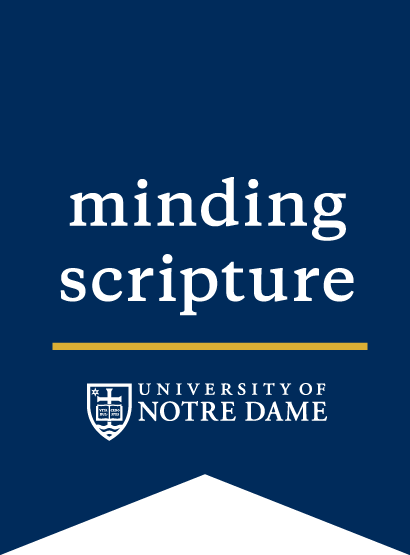Show Notes
Part I: The Gospel of John with Matt Fradd
Join our host Gabriel Reynolds and guest star Matt Fradd, an Australian professor and host of the podcast Pints with Aquinas, to discuss the intricacies of the Gospel of John. How does St. John describe salvation, deification, and evangelization, and how does Aquinas interpret the gospel’s philosophical and theological content?
Fradd explains that Aquinas has a distinctive style when analyzing the Bible: he is logical and straightforward, preferring clarity to rhetorical flourish. His works serve as a reminder that scripture nourishes the whole venture of theology, provide an antidote to indifferentism, and remind theologians that theology is a serious and objective science.
Turning to the Gospel of John, Fradd and Reynolds discuss what is unique and valuable about John’s account of Jesus’s life and mission. Fradd explains that it is certainly the case that the Gospel of John stands apart in style and content from the synoptic gospels: John is the most beautifully written and rich in theology and philosophy. In his commentary, Aquinas describes John as one who “flies like an eagle above the cloud of human weakness and looks upon the light of unchanging truth with the most lofty and firm eyes.”
Yet, questions can be raised regarding John’s narrative: according to Aquinas, John emphasizes the divinity of Christ more than the other synoptics. Does this indicate a change in the Christology of early Christianity? Join Reynolds and Fradd as they examine the early Church’s understanding of Christ’s divinity and how the synoptics complement, and early fathers unpack, the mysteries expressed in John’s Prologue.
Our hosts also probe John’s worldview: does John see creation, and human nature, as fundamentally broken and fallen? On the contrary, John depicts the reality of sin and concupiscence because only when one see the tremendous horror of one’s own sin is one able to see the tremendous horror, and gift, of the Cross. While the reality of damnation and the cost of sanctification may be difficult to acknowledge, Fradd explains, it is a realistic picture according to both Scripture and tradition and ought not to be discounted.
Another passage that invites further reflection is John 3, in which pharisee Nicodemus questions Jesus’s call to baptismal rebirth. Aquinas’s understanding of this passage echoed that of the early fathers: the language of “water and spirit” is universally interpreted to indicate a water baptism. In modern Christian circles, the language about rebirth is sometimes used to describe or defend an instantaneous and personal conversion to Jesus as the moment of salvation. However, John’s gospel also points to the need for constant striving and growth in holiness, that is, deification, a process of constant conversion in which complete transformation is only attained in Heaven. While one could imagine a more palatable or neater approach to salvation that that offered by Scripture, Aquinas insists that although not ontologically necessary, salvation history has been willed by Christ and we are called to echo the words of Peter in faith and trust: “Lord, where else shall we go? You alone have the words of eternal life.”
Finally, Fradd and Reynolds discuss evangelization and interfaith relations. John 3:16 states that God has love for the world, not just believers; how does this impact evangelization and interreligious dialogue?
While the truths expressed in John’s gospel might seem challenging, it is important to note, as Aquinas does in the Summa Contra Gentiles, that a simple and basic faith firmly held is a supernatural gift and thus superior to all of the knowledge gathered by pagan philosophers. To study theology is a sanctifying gift rather than a requirement for sanctification: it is to study God, a path to human flourishing this life and salvation in the next.
Part II: Tzvi Novick on the Gospel of John
Next, join our hosts Gabriel Reynolds and Tzvi Novick in a special bonus episode as they delve into the Gospel of John from a Jewish perspective. After exploring this gospel with Catholic podcaster Matt Fradd, further questions can be raised regarding whether the text’s distinctive style and theological content provide insight into first-century Judaism.
Tzvi explains that the gospel of John is a vital witness unto the process of separation called the “parting of the ways,” whereby a small circle of exclusively Jewish followers came to be formed as Christians set apart from the Jewish faith. Join our hosts as they discuss how this “parting” is depicted in John and carried forward in early Jewish-Christian relations.
Further, although the gospel was written in Greek, Hellenistic Judaism was not separate from the theology and exegesis of Jews working in Hebrew and Aramaic in the first century. Passages such as John 10, which alludes to Psalm 82, show that he is frequently engaging with Jewish exegesis. Thus, how can the resonances between John 1:1 and the Old Testament be considered from a Jewish perspective? What areas of the Old Testament are connected with this passage, and what ideas about God as Wisdom in the Jewish tradition are echoed or challenged here? Does the mythology of personified wisdom resonate with the pre-existent wisdom now identified with the Torah, and do the themes of light and darkness resonate with expressions of second-temple Judaism? His theological distillation both acknowledges and seemingly reorients this background, shifting Old Testament exegesis from a horizontal axis to a vertical one centered on the world above.
Finally, Jews, especially the Pharisees, receive varied characterizations in John’s gospel; do these descriptions, such as in John 3 and John 8, provide insight into early Jewish-Christian relations? Join our hosts as they delve further into these stories to explore how John’s theology emerges from and is predicated upon a Jewish framework.
Further Reading
- Matt Fradd and Robert Delfino. Does God Exist? A Socratic Dialogue on the Five Ways of
Thomas Aquinas. Saint Louis, MO: En Route Books & Media, 2018. - Michael Dauphinais, ed. Reading John with St. Thomas Aquinas: Theological Exegesis and Speculative Theology. Washington, D.C.: The Catholic University of America Press, 2010.
- Thomas Aquinas: Summa Contra Gentiles, Summa Theologica, De Rationis Fidei, and Commentary on the Gospel of Saint John.
Featured Guest

Matt Fradd is a Catholic Australian author, podcaster, and university professor. He is the host of the successful podcast Pints with Aquinas, and has written and contributed to numerous books, including Does God Exist? A Socratic Dialogue on the Five Ways of Thomas Aquinas. Matt earned his undergraduate and graduate degrees in philosophy from Holy Apostles College & Seminary where he now teaches.
Matt Fradd
Professor and podcaster
IMAGE CREDIT: Art Gallery ErgsArt
